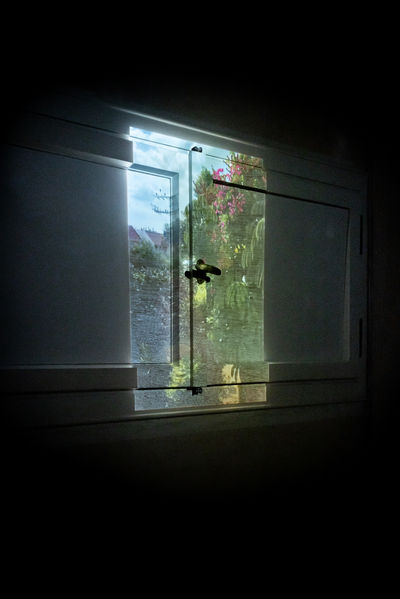Space: Omer Ittah
The generic elements of architectural spaces seem silent and mute, striving to reflect the events around them through the linguistic expressions assigned to them: doors, ceilings, floors, and so on. However, the spaces they create transform from the signs and lines initially sketched on a blank page into a narrative environment, a living text articulated by its users, with its beginning and end shaped by their words.
The dual meaning of the term "space" is central to the exhibition. In Hebrew, "halal" signifies both "space" and the "void" left by someone who has passed away . The exhibited works are a site-adapted modification by Omer Ittah, a graduate of the Technion architecture faculty who tragically lost his brother, Captain Harel Ittah, during his final year of study. This profound loss inspired Omer to focus his research on personal mapping, a practice he employs to cope with and explore the emptiness that emerged in his life following his brother's death.
In the exhibition, Ittah explores the layers of physical space laden with significant personal memories, observing this mute space through his brother’s voice and story. This examination focuses on the places his brother spent time in before his death: the childhood home, Kibbutz Nahal Oz, Khan Yunis, and Soroka Hospital, where he succumbed to his wounds. The works highlight the contrast between the seemingly random nature of these locations and the profound significance they acquire following his brother's death. For Ittah, this connection transforms architectural elements from universal and generic into integral parts of a personal narrative. He invites visitors to engage with these spaces—looking through windows, entering through doors, and peering into areas filled with memories and emotional depth.
In memory of Captain Harel Ittah, the artist’s brother

Omer Ittach, born in 1996 in Netanya, is an architect and creator based in Tel Aviv. He holds both bachelor's and master's degrees from the Faculty of Architecture and Town Planning at the Technion, where he received significant professional recognition during his studies.
He has numerous achievements, including winning the Israeli Architecture Award in the "Architecture of Tomorrow" category and securing victory in the design competition for the Marine Engineering Institute at the Technion. He also won the "Future Housing" competition organized by the Italian architecture firm Fuksas, which led to an internship at the company's headquarters in Rome. Later in his career, he served as a
judge for the Israeli Architecture Award.
The exhibition "Space" explores the personal bereavement experienced by the artist following the death of his brother Harel, a team commander in the Givati Reconnaissance Unit. Harel passed away at the onset of the artist's final project during his studies. As such, the exhibition delves into the dual meaning of the Hebrew word "chalal," which translates to both "space" and "fallen soldier." It examines architectural space and the concept of loss from the perspective of a bereaved brother who is also a young architect. The exhibition follows Omer's journey through the key moments of Harel's life and seeks to convey the depth of his loss by exploring the physical and emotional spaces left after Harel's death.
Ittach's work examines human sensitivity, spatial concepts, and the connection between personal and public realms, integrating architecture, art, and memory.
Curatorial guidance: Shira Levy Benyemini
Production assistant: Talya Hurwitz
Installation: Omer Ittah, Liav Levy
Graphic design: Alex Tal Usher
Supervision of Final Project at the Technion
Academic supervision: Arch. Gabi Schwartz and Dr. Dikla Yizhar
Curatorial advisor: Dr. Yonni Avidan













